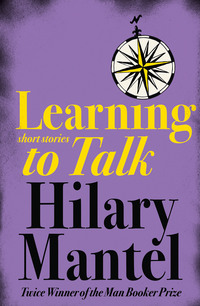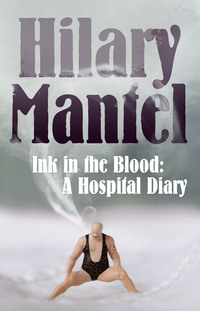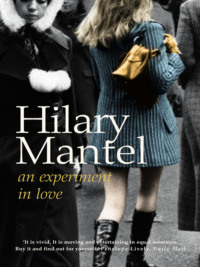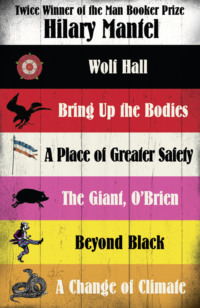
Полная версия
The Wolf Hall Trilogy
Queen Katherine had a child that disappeared. In the first year of her marriage to Henry, she miscarried, but the doctors said that she was carrying twins, and the cardinal himself remembers her at court with her bodices loosened and a secret smile on her face. She took to her rooms for her confinement; after a time, she emerged tight-laced, with a flat belly, and no baby.
It must be a Tudor speciality.
A little later, he hears that Anne has taken the wardship of her sister's son, Henry Carey. He wonders if she intends to poison him. Or eat him.
New Year 1529: Stephen Gardiner is in Rome, issuing certain threats to Pope Clement, on the king's behalf; the content of the threats has not been divulged to the cardinal. Clement is easily panicked at the best of times, and it is not surprising that, with Master Stephen breathing sulphur in his ear, he falls ill. They are saying that he is likely to die, and the cardinal's agents are around and about in Europe, taking soundings and counting heads, chinking their purses cheerfully. There would be a swift solution to the king's problem, if Wolsey were Pope. He grumbles a little about his possible eminence; the cardinal loves his country, its May garlands, its tender birdsong. In his nightmares he sees squat spitting Italians, a forest of nooses, a corpse-strewn plain. ‘I shall want you to come with me, Thomas. You can stand by my side and move quick if any of those cardinals tries to stab me.’
He pictures his master stuck full of knives, as St Sebastian is stuck full of arrows. ‘Why does the Pope have to be in Rome? Where is it written?’
A slow smile spreads over the cardinal's face. ‘Bring the Holy See home. Why not?’ He loves a bold plan. ‘I couldn't bring it to London, I suppose? If only I were Archbishop of Canterbury, I could hold my papal court at Lambeth Palace … but old Warham does hang on and on, he always baulks me …’
‘Your Grace could move to your own see.’
‘York is so remote. I couldn't have the papacy in Winchester, you don't think? Our ancient English capital? And nearer the king?’
What an unusual regime this will turn out to be. The king at supper, with the Pope, who is also his Lord Chancellor … Will the king have to hand him his napkin, and serve him first?
When news comes of Clement's recovery, the cardinal doesn't say, a glorious chance lost. He says, Thomas, what shall we do next? We must open the legatine court, it can be no longer delayed. He says, ‘Go and find me a man called Anthony Poynes.’
He stands, arms folded, waiting for further and better particulars.
‘Try the Isle of Wight. And fetch me Sir William Thomas, whom I believe you will find in Carmarthen – he's elderly, so tell your men to go slowly.’
‘I don't employ anyone slow.’ He nods. ‘Still, I take the point. Don't kill the witnesses.’
The trial of the king's great matter is approaching. The king intends to show that when Queen Katherine came to him she was not a virgin, having consummated her marriage with his brother Arthur. To that end he is assembling the gentlemen who attended the royal couple after their wedding at Baynard's Castle, then later at Windsor, where the court moved in November that year, and later at Ludlow, where they were sent to play at Prince and Princess of Wales. ‘Arthur,’ Wolsey says, ‘would have been about your age, Thomas, if he had lived.’ The attendants, the witnesses, are at least a generation older. And so many years have gone by – twenty-eight, to be precise. How good can their memories be?
It should never have come to this – to this public and unseemly exposure. Cardinal Campeggio has implored Katherine to bow to the king's will, accept that her marriage is invalid and retire to a convent. Certainly, she says sweetly, she will become a nun: if the king will become a monk.
Meanwhile she presents reasons why the legatine court should not try the issue. It is still sub judice at Rome, for one thing. For another, she is a stranger, she says, in a strange country; she ignores the decades in which she's been intimate with every twist and turn of English policy. The judges, she claims, are biased against her; certainly, she has reason to believe it. Campeggio lays hand on heart, and assures her he would give an honest judgment, even if he were in fear of his life. Katherine finds him too intimate with his co-legate; anyone who has spent much time with Wolsey, she thinks, no longer knows what honesty is.
Who is advising Katherine? John Fisher, Bishop of Rochester. ‘Do you know what I can't endure about that man?’ the cardinal says. ‘He's all skin and bone. I abhor your skeletal prelate. It makes the rest of us look bad. One looks … corporeal.’
He is in his corporeal pomp, his finest scarlet, when the king and queen are summoned before the two cardinals at Blackfriars. Everyone had supposed that Katherine would send a proxy, but instead she appears in person. The whole bench of bishops is assembled. The king answers to his name, in a full, echoing voice, speaking out of his big bejewelled chest. He, Cromwell, would have advised a motion of the hand, a murmur, a dip of the head to the court's authority. Most humility, in his view, is pretence; but the pretence can be winning.
The hall is packed. He and Rafe are far-off spectators. Afterwards, when the queen has made her statement – a few men have been seen to cry – they come out into the sunshine. Rafe says, ‘If we had been nearer, we could have seen whether the king could meet her eye.’
‘Yes. That is really all anyone needs to know.’
‘I'm sorry to say it, but I believe Katherine.’
‘Hush. Believe nobody.’
Something blots out the light. It is Stephen Gardiner, black and scowling, his aspect in no way improved by his trip to Rome.
‘Master Stephen!’ he says. ‘How was your journey home? Never pleasant, is it, to come back empty-handed? I've been feeling sorry for you. I suppose you did your best, such as it is.’
Gardiner's scowl deepens. ‘If this court can't give the king what he wants, your master will be finished. And then it is I who will feel sorry for you.’
‘Except you won't.’
‘Except I won't,’ Gardiner concedes; and moves on.
The queen does not return for the sordid parts of the proceedings. Her counsel speaks for her; she has told her confessor how her nights with Arthur left her untouched, and she has given him permission to break the seal of the confessional and make her assertion public. She has spoken before the highest court there is, God's court; would she lie, to the damnation of her soul?
Besides, there is another point, which everyone has in mind. After Arthur died, she was presented to prospective bridegrooms – to the old king, as it may be, or to the young Prince Henry – as fresh meat. They could have brought a doctor, who would have looked at her. She would have been frightened, she would have cried; but she would have complied. Perhaps now she wishes it had been so; that they had brought in a strange man with cold hands. But they never asked her to prove what she claimed; perhaps people were not so shameless in those days. The dispensations for her marriage to Henry were meant to cover either case: she was/was not a virgin. The Spanish documents are different from the English documents, and that is where we should be now, among the subclauses, studying paper and ink, not squabbling in a court of law over a shred of skin and a splash of blood on a linen sheet.
If he had been her adviser, he would have kept the queen in court, however much she squealed. Because, would the witnesses have spoken, to her face, as they spoke behind her back? She would be ashamed to face them, gnarled and grizzled and each equipped with perfect recollection; but he would have had her greet them cordially, and declare she would never have recognised them, after so much time gone by; and ask if they have grandchildren, and whether the summer heat eases their elderly aches and pains? The greater shame would be theirs: would they not hesitate, would they not falter, under the steady gaze of the queen's honest eyes?
Without Katherine present, the trial becomes a bawdy entertainment. The Earl of Shrewsbury is before the court, a man who fought with the old king at Bosworth. He recalls his own long-ago wedding night, when he was, like Prince Arthur, a boy of fifteen; never had a woman before, he says, but did his duty to his bride. On Arthur's wedding night, he and the Earl of Oxford had taken the prince to Katherine's chamber. Yes, says the Marquis of Dorset, and I was there too; Katherine lay under the coverlet, the prince got into bed beside her. ‘No one is willing to swear to having climbed in with them,’ Rafe whispers. ‘But I wonder they haven't found someone.’
The court must make do with evidence of what was said next morning. The prince, coming out of the bridal chamber, said he was thirsty and asked Sir Anthony Willoughby for a cup of ale. ‘Last night I was in Spain,’ he said. A little boy's crude joke, dragged back into the light; the boy has been, these thirty years, a corpse. How lonely it is to die young, to go down into the dark without any company! Maurice St John is not there with him, in his vault at Worcester Cathedral: nor Mr Cromer nor William Woodall, nor any of the men who heard him say, ‘Masters, it is good pastime to have a wife.’
When they have listened to all this, and they come out into the air, he feels strangely cold. He puts a hand to his face, touches his cheekbone. Rafe says, ‘It would be a poor sort of bridegroom who would come out in the morning and say, “Good day, masters. Nothing done!” He was boasting, wasn't he? That was all. They've forgotten what it's like to be fifteen.’
Even as the court is sitting, King François in Italy is losing a battle. Pope Clement is preparing to sign a new treaty with the Emperor, Queen Katherine's nephew. He doesn't know this when he says, ‘This is a bad day's work. If we want Europe to laugh at us, they've every reason now.’
He looks sideways at Rafe, whose particular problem, clearly, is that he cannot imagine anyone, even a hasty fifteen-year-old, wanting to penetrate Katherine. It would be like copulation with a statue. Rafe, of course, has not heard the cardinal on the subject of the queen's former attractions. ‘Well, I reserve judgment. Which is what the court will do. It's all they can do.’ He says, ‘Rafe, you are so much closer in these matters. I can't remember being fifteen.’
‘Surely? Were you not fifteen or so when you fetched up in France?’
‘Yes, I must have been.’ Wolsey: ‘Arthur would have been about your age, Thomas, if he had lived.’ He remembers a woman in Dover, up against a wall; her small crushable bones, her young, bleak, pallid face. He feels a small sensation of panic, loss; what if the cardinal's joke isn't a joke, and the earth is strewn with his children, and he has never done right by them? It is the only honest thing to be done: look after your children. ‘Rafe,’ he says, ‘do you know I haven't made my will? I said I would but I never did. I think I should go home and draft it.’
‘Why?’ Rafe looks amazed. ‘Why now? The cardinal will want you.’
‘Come home.’ He takes Rafe's arm. On his left side, a hand touches his: fingers without flesh. A ghost walks: Arthur, studious and pale. King Henry, he thinks, you raised him; now you put him down.
July 1529: Thomas Cromwell of London, gentleman. Being whole in body and memory. To his son Gregory six hundred and sixty-six pounds thirteen shillings and four pence. And featherbeds, bolsters and the quilt of yellow turkey satin, the joined bed of Flanders work and the carved press and the cupboards, the silver and the silver gilt and twelve silver spoons. And leases of farms to be held for him by the executors till he comes to full age, and another two hundred pounds for him in gold at that date. Money to the executors for the upbringing and marriage portions of his daughter Anne, and his little daughter Grace. A marriage portion for his niece Alice Wellyfed; gowns, jackets and doublets to his nephews; to Mercy all sorts of household stuff and some silver and anything else the executors think she should have. Bequests to his dead wife's sister Johane, and her husband John Williamson, and a marriage portion to her daughter, also Johane. Money to his servants. Forty pounds to be divided between forty poor maidens on their marriage. Twenty pounds for mending the roads. Ten pounds towards feeding poor prisoners in the London gaols.
His body to be buried in the parish where he dies: or at the direction of his executors.
The residue of his estate to be spent on Masses for his parents.
To God his soul. To Rafe Sadler his books.
When the summer plague comes back, he says to Mercy and Johane, shall we send the children out?
In which direction, Johane says: not challenging him, just wanting to know.
Mercy says, can anyone outrun it? They take comfort from a belief that since the infection killed so many last year, it won't be so violent this year; which he does not think is necessarily true, and he thinks they seem to be endowing this plague with a human or at least bestial intelligence: the wolf comes down on the sheepfold, but not on the nights when the men with dogs are waiting for him. Unless they think the plague is more than bestial or human – that it is God behind it – God, up to his old tricks. When he hears the bad news from Italy, about Clement's new treaty with the Emperor, Wolsey bows his head and says, ‘My Master is capricious.’ He doesn't mean the king.
On the last day of July, Cardinal Campeggio adjourns the legatine court. It is, he says, the Roman holidays. News comes that the Duke of Suffolk, the king's great friend, has hammered the table before Wolsey, and threatened him to his face. They all know the court will never sit again. They all know the cardinal has failed.
That evening with Wolsey he believes, for the first time, that the cardinal will come down. If he falls, he thinks, I come down with him. His reputation is black. It is as if the cardinal's joke has been incarnated: as if he wades through streams of blood, leaving in his wake a trail of smashed glass and fires, of widows and orphans. Cromwell, people say: that's a bad man. The cardinal will not talk about what is happening in Italy, or what has happened in the legate's court. He says, ‘They tell me the sweating sickness is back. What shall I do? Shall I die? I have fought four bouts with it. In the year … what year? … I think it was 1518 … now you will laugh, but it was so – when the sweat had finished with me, I looked like Bishop Fisher. My flesh was wasted. God picked me up and rattled my teeth.’
‘Your Grace was wasted?’ he says, trying to raise a smile. ‘I wish you'd had your portrait made then.’
Bishop Fisher has said in court – just before the Roman holidays set in – that no power, human or divine, could dissolve the marriage of the king and queen. If there's one thing he'd like to teach Fisher, it's not to make grand overstatements. He has an idea of what the law can do, and it's different from what Bishop Fisher thinks.
Until now, every day till today, every evening till this, if you told Wolsey a thing was impossible, he'd just laugh. Tonight he says – when he can be brought to the point – my friend King François is beaten and I am beaten too. I don't know what to do. Plague or no plague, I think I may die.
‘I must go home,’ he says. ‘But will you bless me?’
He kneels before him. Wolsey raises his hand, and then, as if he has forgotten what he's doing, lets it hover in mid-air. He says, ‘Thomas, I am not ready to meet God.’
He looks up, smiling. ‘Perhaps God is not ready to meet you.’
‘I hope that you will be with me when I die.’
‘But that will be at some distant date.’
He shakes his head. ‘If you had seen how Suffolk set on me today. He, Norfolk, Thomas Boleyn, Thomas Lord Darcy, they have been waiting only for this, for my failure with this court, and now I hear they are devising a book of articles, they are drawing up a list of accusations, how I have reduced the nobility, and so forth – they are making a book called – what will they call it? – “Twenty Years of Insults”? They are brewing some stewpot into which they are pouring the dregs of every slight, as they conceive it, by which they mean every piece of truth I have told them …’ He takes a great rattling breath, and looks at the ceiling, which is embossed with the Tudor rose.
‘There will be no such stewpots in Your Grace's kitchen,’ he says. He gets up. He looks at the cardinal, and all he can see is more work to be done.
‘Liz Wykys,’ Mercy says, ‘wouldn't have wanted her girls dragged about the countryside. Especially as Anne, to my knowledge, cries if she does not see you.’
‘Anne?’ He is amazed. ‘Anne cries?’
‘What did you think?’ Mercy asks, with some asperity. ‘Do you think your children don't love you?’
He lets her make the decision. The girls stay at home. It's the wrong decision. Mercy hangs outside their door the signs of the sweating sickness. She says, how has this happened? We scour, we scrub the floors, I do not think you will find in the whole of London a cleaner house than ours. We say our prayers. I have never seen a child pray as Anne does. She prays as if she's going into battle.
Anne falls ill first. Mercy and Johane shout at her and shake her to keep her awake, since they say if you sleep you will die. But the pull of the sickness is stronger than they are, and she falls exhausted against the bolster, struggling for breath, and falls further, into black stillness, only her hand moving, the fingers clenching and unclenching. He takes it in his own and tries to still it, but it is like the hand of a soldier itching for a fight.
Later she rouses herself, asks for her mother. She asks for the copybook in which she has written her name. At dawn the fever breaks. Johane bursts into tears of relief, and Mercy sends her away to sleep. Anne struggles to sit up, she sees him clearly, she smiles, she says his name. They bring a basin of water strewn with rose petals, and wash her face; her finger reaches out, tentative, to push the petals below the water, so each of them becomes a vessel shipping water, a cup, a perfumed grail.
But when the sun comes up her fever rises again. He will not let them begin it again, the pinching and pummelling, the shaking; he gives her into God's hands, and asks God to be good to him. He talks to her but she makes no sign that she hears. He is not, himself, afraid of contagion. If the cardinal can survive this plague four times, I am sure I am in no danger, and if I die, I have made my will. He sits with her, watching her chest heaving, watching her fight and lose. He is not there when she dies – Grace has already taken sick, and he is seeing her put to bed. So he is out of the room, just, and when they usher him in, her stern little face has relaxed into sweetness. She looks passive, placid; her hand is already heavy, and heavy beyond his bearing.
He comes out of the room; he says, ‘She was already learning Greek.’ Of course, Mercy says: she was a wonderful child, and your true daughter. She leans against his shoulder and cries. She says, ‘She was clever and good, and in her way, you know, she was beautiful.’
His thought had been: she was learning Greek: perhaps she knows it now.
Grace dies in his arms; she dies easily, as naturally as she was born. He eases her back against the damp sheet: a child of impossible perfection, her fingers uncurling like thin white leaves. I never knew her, he thinks; I never knew I had her. It has always seemed impossible to him that some act of his gave her life, some unthinking thing that he and Liz did, on some unmemorable night. They had intended the name to be Henry for a boy, Katherine for a girl, and, Liz had said, that will do honour to your Kat as well. But when he had seen her, swaddled, beautiful, finished and perfect, he had said quite another thing, and Liz had agreed. We cannot earn grace. We do not merit it.
He asks the priest if his elder daughter can be buried with her copybook, in which she has written her name: Anne Cromwell. The priest says he has never heard of such a thing. He is too tired and angry to fight.
His daughters are now in Purgatory, a country of slow fires and ridged ice. Where in the Gospels does it say ‘Purgatory’?
Tyndale says, now abideth faith, hope and love, even these three; but the greatest of these is love.
Thomas More thinks it is a wicked mistranslation. He insists on ‘charity’. He would chain you up, for a mistranslation. He would, for a difference in your Greek, kill you.
He wonders again if the dead need translators; perhaps in a moment, in a simple twist of unbecoming, they know everything they need to know.
Tyndale says, ‘Love never falleth away.’
October comes in. Wolsey presides, as usual, over the meetings of the king's council. But in the law courts, as Michaelmas term opens, writs are moved against the cardinal. He is charged with success. He is charged with the exercise of power. Specifically, he is charged with asserting a foreign jurisdiction in the king's realm – that is to say, with exercising his role as papal legate. What they mean to say is this: he is alter rex. He is, he has always been, more imperious than the king. For that, if it is a crime, he is guilty.
So now they swagger into York Place, the Duke of Suffolk, the Duke of Norfolk: the two great peers of the realm. Suffolk, his blond beard bristling, looks like a pig among truffles; a florid man, he remembers, turns my lord cardinal sick. Norfolk looks apprehensive, and as he turns over the cardinal's possessions, it is clear that he expects to find wax figures, perhaps of himself, perhaps with long pins stuck through them. The cardinal has done his feats by a compact with the devil; that is his fixed opinion.
He, Cromwell, sends them away. They come back. They come back with further and higher commissions and better signatures, and they bring with them the Master of the Rolls. They take the Great Seal from my lord cardinal.
Norfolk glances sideways at him, and gives him a fleeting, ferrety grin. He doesn't know why.
‘Come and see me,’ the duke says.
‘Why, my lord?’
Norfolk turns down his mouth. He never explains.
‘When?’
‘No hurry,’ Norfolk says. ‘Come when you've mended your manners.’
It is 19 October 1529.
III Make or Mar All Hallows 1529
Halloween: the world's edge seeps and bleeds. This is the time when the tally-keepers of Purgatory, its clerks and gaolers, listen in to the living, who are praying for the dead.
At this time of year, with their parish, he and Liz would keep vigil. They would pray for Henry Wykys, her father; for Liz's dead husband, Thomas Williams; for Walter Cromwell, and for distant cousins; for half-forgotten names, long-dead half-sisters and lost step-children.
Last night he kept the vigil alone. He lay awake, wishing Liz back; waiting for her to come and lie beside him. It's true he is at Esher with the cardinal, not at home at the Austin Friars. But, he thought, she'll know how to find me. She'll look for the cardinal, drawn through the space between worlds by incense and candlelight. Wherever the cardinal is, I will be.
At some point he must have slept. When daylight came, the room felt so empty it was empty even of him.
All Hallows Day: grief comes in waves. Now it threatens to capsize him. He doesn't believe that the dead come back; but that doesn't stop him from feeling the brush of their fingertips, wing-tips, against his shoulder. Since last night they have been less individual forms and faces than a solid aggregated mass, their flesh slapping and jostling together, their texture dense like sea creatures, their faces sick with an undersea sheen.
Now he stands in a window embrasure, Liz's prayer book in hand. His daughter Grace liked to look at it, and today he can feel the imprint of her small fingers under his own. These are Our Lady's prayers for the canonical hours, the pages illuminated by a dove, a vase of lilies. The office is Matins, and Mary kneels on a floor of chequered tiles. The angel greets her, and the words of his greeting are written on a scroll, which unfurls from his clasped hands as if his palms are speaking. His wings are coloured: heaven-blue.









